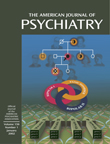Treatment of Depression: Bridging the 21st Century
Dr. Weissman, one of the world’s leading researchers in depression, was President of the American Psychopathological Association at its 89th meeting and served as editor of this excellent compilation of papers presented at that meeting. The book surveys past research accomplishments, looks ahead to new research directions, and concludes with a review of current biological and psychotherapeutic treatment strategies. The chapters reviewing the past accomplishments and future directions provide a superb overview and summary for the researcher and clinical scholar in the field of depression. For example, David Healy reviews the past development of antidepressant drugs and then looks ahead to new genetic and neuroimaging techniques that are increasingly guiding the development of antidepressant drugs. In a complementary chapter, Robert Michels surveys the changes over the past three decades in diagnosis, clinical understanding, and health care delivery for the treatment of depression.
The heart of this volume is three chapters that provide the reader with an expanded understanding of recent research developments and the progress toward a neurobiological understanding of depression. Charles Nemeroff and Mike Owens review work (primarily theirs) on the role of peptides in depression. Steven Hyman and Steven Moldin discuss the genomic tools that are increasingly applied to the study of major depression, the impact of the human genome project and gene mapping, and the future of genomically informed therapeutics. David Kupfer and Ellen Frank synthesize what has been learned about the maintenance treatment of depression and its relationship to clinical markers of neurobiological function such as EEG sleep variables. Each of these chapters is a small gem.
The treatment chapters provide an overview of the psychotherapies, pharmacotherapies, and biological therapies of depression. These reviews are not extensive summaries of past clinical trials. Rather, they synthesize available antidepressant and psychotherapy efficacy studies in a historical context. Accordingly, they are not useful as a treatment primer but nicely survey past, present, and future directions in the treatment of depression.
Treatment of Depression: Bridging the 21st Century is not a volume for all readers, but it can serve as a historical marker as well as a guidepost pointing us to the future. In its pages, we can concisely see where the study of the etiology, diagnosis, and treatment of depression originated, grew to a mature science, and now leaps forward into an era of brand new science and technology.



